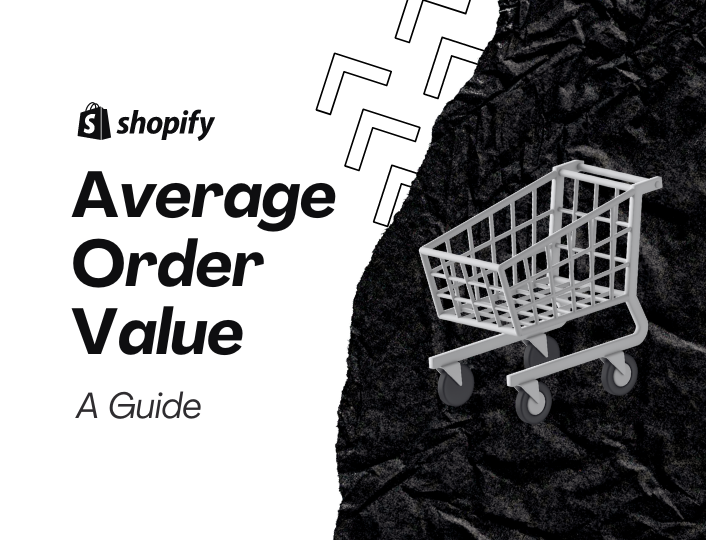AI has recently become the most discussed topic in business, sales, and technology. Despite known benefits and challenges of using AI, many individuals are conservative about AI adoption.
Has AI come to steal people’s means of survival? Should we even trust bots and programs with private, sensitive data?
Regardless of sentiments, AI is influencing the contemporary approach to work. And eCommerce isn’t left out.
In this guide, we will discuss the benefits and challenges of AI for the eCommerce industries and how it can affect the overall performance of businesses. But before we go on, we’ll quickly look at the definition of AI and its role in modern businesses.
What is Artificial Intelligence(AI)?
Artificial Intelligence(AI) can be described as transferable knowledge keyed into machines and programmed robots through machine languages. The goal? To perform tasks with the same capabilities as humans or slightly above the capabilities of humans.
AI signifies speed, efficiency, and accuracy.
We can see some of these AI apps in search engines, recommendation systems, understanding human speech (Siri & Alexa), our inventory management and generative and creative tools (ChatGPT & AI art).
True, AI implementation is helpful. Yet, we must recognize the demerits of leaning on AI for business processes.
With that in mind, we will discuss some of the benefits and challenges of AI with emphasis on its impact on Shopify businesses.
Advantages of AI Apps in eCommerce(Shopify) Businesses.
1. Advanced Search and Discovery
With AI, the search and discovery process for customers has been greatly intensified. Natural Language Processing techniques now enable semantic search, allowing users to find products using more conversational queries.
In addition, it analyzes user’s behaviours and preferences to deliver more accurate search results and recommendations. This yields increased customer engagement and conversion rates.
2. Personalized Shopping Experience
It enables owners narrow down customers’ preferences & choices. and generate product recommendations based on each customer’s preference.
With the right data, AI takes into consideration the demographics, browsing history and purchasing power of the customer to personalize their shopping experience.
3. Improved Customer Service
Customer services have been greatly enhanced. All credit to the implementation of AI chatbots and virtual assistance.
These AI apps handle a wide range of customer queries, providing instant responses and 24/7 assistance. Owners can now save time on resolving recurring customer issues. This improves response times and overall customer satisfaction.
4. Effective Inventory Management
AI algorithms have shaped and modernized inventory management and supply chains. They can predict demands, identify optimal stocking levels and automate inventory replenishment.
A great deal that helps you to minimize stockouts, reduce excess inventory and improve overall operational efficiency.
Disadvantages of AI Apps on Shopify Businesses
1. Data Privacy and Security Controls
A core challenge of AI is data privacy. AI thrives on customer data and information which poses a threat to personal privacy and security.
Companies can compile with data protection regulations and implement tight security measures. This protects customer’s information from unauthorized access and fraudsters.
2. Integrity and Scalability
Implementing AI systems in eCommerce requires integrating them with existing infrastructure and platforms. This can be complex and time-consuming, particularly for businesses with legacy systems. Additionally, ensuring the scalability of AI solutions to handle increasing data volumes and user traffic is essential for long-term success.
3. Ethical Considerations
AI algorithms make decisions based on patterns and correlations in data, which can sometimes result in biased outcomes or discriminatory practices. It is crucial for businesses to address ethical considerations and ensure AI systems are fair and unbiased. Regular monitoring and auditing of AI algorithms can help identify and rectify any biases that may arise.
4. Skill Gap and Resource Requirements
Leveraging AI in eCommerce requires skilled professionals who understand AI technologies, data analytics, and machine learning. Businesses need to invest in training their workforce or hiring specialized talent to develop, implement and maintain AI systems effectively.
5. User Acceptance and Adoption
Employees and customers who prefer traditional methods of shopping may express their displeasure with AI-driven systems.
To overcome this challenge, businesses should educate customers about the benefits of AI, ensure transparency, and address concerns.
With this knowledge in mind, you can harness the power of AI to drive growth, innovation, and customer satisfaction in the digital marketplace.
We’ve curated the best AI apps for doing great work:
Best AI Apps for Shopify
1. Product Description ChatGPT AI


Write descriptive details about products with this product description wizard app. It employs advanced algorithms and natural processing capabilities to describe products in your store.
This tool does not compromise quality. It generates quality product recommendations that increase products’ ranking on search engines.
It writes descriptions that match your brand voice and speak to your target audience. Also, it saves you time and effort to focus on other important parts of your business.
Product Description is free to install and use.
2. Fera Product Review App


Gain customers’ trust and loyalty with this product review app. Manage and grow your customer reviews, photos review and video review with Fera.
It provides you with quality reviews without compromising on quality and brand aesthetics. It also allows imports of reviews from Facebook, Google, Etsy and other social platforms.
Fera provides automatic post-purchase review request emails to gather customer reviews and feedback.
It is easily customizable and supports multiple languages. Fera is one review app to rely on for your brand review and business growth.
Pricing
Prices start at $9/month up to $99/month for 10,000 order review requests per month.
It also offers a free plan that allows unlimited review imports.
3. R: AI Chat/Sales Assistance


Revolutionize your customer service and support with this best AI-powered sales assistance from Retentia.
Retentia is fully functional with or without supervision. It guides your customers through their shopping journey.
It offers quick responses to queries, 24/7 assistance and provides personalized products recommendation to your customers.
Installation is easy. It also accesses and analyzes your data and sales details to help you adjust and improve your strategy.
Pricing
The basic plan starts at $49/month with a free version for 50 AI sales sessions per month.
4. Transcy: AI-Language Translate


Language should not be a barrier to selling in the International marketplace. With Transcy, language translation gets easy. You can showcase your products and brands to a wider range of audience.
With the help of AI and other automation, Transcy helps to prepare your store for worldwide sales through translation.
Transcy uses the auto-detect system to translate and create a currency converter that helps you to drive more sales and grow your brand globally. Otherwise, you can translate it manually or through experts.
Also, it translates images into customers’ language for easy comprehension and connection.
It allows for unlimited words and the multi-currency converters are created at real-time Exchange Rates.
Pricing
Starts at $11.90/month, up to $59.90/month for 20 or more language translations.
It also comes with a free-to-install version with 1 language and 1 currency converter.
Conclusion
By leveraging AI, you can deliver exceptional customer experiences, increase conversions and stay competitive in the rapidly evolving digital marketplace.
AI integration in eCommerce is a relevant necessity, but not without its benefits and challenges. Before adoption, weigh its potential impacts on your business and brand.
I believe the benefits outweigh the disadvantages. Incorporating AI into your Shopify business is worth the risk.




